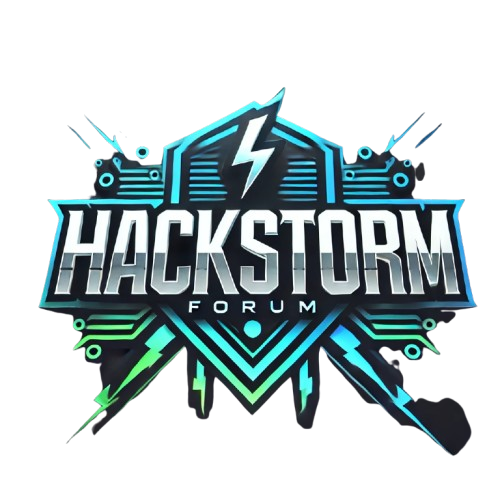-
Posts
41 -
Joined
-
Last visited
-
Days Won
8
Staff Member
Pulse belongs to the Staff group.
Pulse last won the day on January 28
Pulse had the most liked content!
Recent Profile Visitors
3872 profile views
Pulse's Achievements
-
Request MC Player (Only one per user) Provide the name you want Player Position and Height CFID - You want an NBA Player Face Full Badges (HOF) / Gold / Silver 99 Attributes 99 Overall Fans Unlock (Rank 30) Unlock Max MyCareer Points Unlimited VC Full Equipment / Dunk Packages Show All Plays during MyCareer game Unlimited Badge Upgrade Points ( Incase you don’t need 64 HOF Badges )
-
TikTok by TikTok Ltd. v38.2.0 iTunes Page Bundle ID: com.zhiliaoapp.musically Requires: iOS 12.0 or later File size: 576.5 MB (or less) [Hidden Content]
-
Subway Surfers by Sybo Games ApS v3.40.4 App Store : [Hidden Content] Bundle ID: com.kiloo.subwaysurfers Requires: iOS 13.0 or later File size: 279.6 MB (or less) [Hidden Content]
-
We are implementing a lot of features this month. We will be adding new items soon. Please check back later for more soon!
-
- 1
-

-
Reverse Engineering eBooks Pack Book List inside the Collection: [Hidden Content]
-
this is just awesome... thanks for this...
- 3 replies
-
- 1
-

-
- mega pack
- ebooks pack
-
(and 1 more)
Tagged with:
-
Will need more of this. maybe i will break into sections.. too much info here
- 3 replies
-
- 1
-

-
- mega pack
- ebooks pack
-
(and 1 more)
Tagged with:
-

Supercharge Your Social Media - Free AI Content Creators
Pulse replied to Mr.Brilliant's topic in Give-Away & Freebies
Thanks for this, will try it out..- 1 reply
-
- 1
-

-
- content creation
- ai tools
-
(and 3 more)
Tagged with:
-

[Giveaway] AmoyShare AnyMusic for Windows 1-Year License
Pulse replied to Mr.Brilliant's topic in Give-Away & Freebies
Thanks for this!- 1 reply
-
- 1
-

-
- windows giveaway
- music downloader
-
(and 2 more)
Tagged with:
-
[Hidden Content]
-
So I have used both rootful and rootless jailbreaks over the years, they both have their advantages and disadvantages. Knowing which to use comes down to personal preference, today we will go over some of the characteristics and key differences of using both jailbreak modes. By the the end of this topic you should be able to choose between the two or even try both. The terms rootful and rootless describe different modes of operation in a jailbroken or non-jailbroken iOS environment, particularly when discussing jailbreaks and their impact on file system access and privileges. Rootful Mode In a rootful environment, the jailbreak operates with full access to the root file system. This means the jailbreak can modify or replace system files directly. Characteristics: Full Root Access: You have unrestricted access to the root file system (/) and can modify system files and settings. Persistence: Changes to the file system (e.g., tweaks, daemons, or modifications) remain intact after a reboot until the jailbreak is removed or the device is restored. Invasive: System files are altered, which makes this mode detectable by some apps or system checks (e.g., banking apps or games). Compatibility: Compatible with older jailbreaks and tools that rely on modifying system files. Risks: Greater potential for bricking or corrupting the system due to accidental file system changes. Rootless Mode In a rootless environment, the jailbreak operates without modifying the root file system. Instead, all tweaks and changes are contained within a sandboxed or user space, typically under /var or another directory accessible without root permissions. Characteristics: No Root File System Access: The root file system remains untouched, meaning system files and directories are protected. Non-Persistent: The jailbreak operates temporarily, and no permanent changes are made to the system. Changes are removed on reboot unless reapplied. Safer and Less Detectable: Because the root file system is untouched, it is harder for apps or system checks to detect jailbreak-related changes. Modern Jailbreaks: Many newer jailbreaks, especially for iOS 15 and beyond, adopt rootless mode for better security and compatibility with Apple's protections. Compatibility Challenges: Some older tweaks or apps that expect root access or system file modifications may not work in rootless environments. Key Differences Feature Rootful Rootless Root File System Fully accessible and modifiable Protected and untouched Persistence Permanent until removed Temporary, reset on reboot Safety Higher risk of corruption Safer, no system modifications Detection Easier to detect by apps Harder to detect Compatibility Works with legacy tweaks Requires tweaks designed for rootless Jailbreak Checkra1n Dopamine, Palera1n (rootless) Which Should You Choose? Rootful: Use this if you need full system access and are okay with the risks of modifying the root file system. Ideal for older iOS versions or advanced users. Rootless: This is recommended for newer jailbreaks as it aligns with Apple's tighter security measures. It’s safer, less detectable, and compatible with modern tweaks.
-
Is it free? It uses spaces, wow just great LOL
- 1 reply
-
- 1
-

-
- content creation
- create shorts
-
(and 4 more)
Tagged with:
-
In our case, the base address is “mono-2.0-bdwgc.dll”+004A1820. So, first, we have to get the address of mono-2.0-bdwgc.dll and add 0x004A1820 to it to get the base address. In pymeow, Process objects have a dictionary called modules that contains all the modules and those modules are also dictionaries and they have a parameter called baseaddr. Now what we want to do is get the base address of mono-2.0-bdwgc.dll and we can access it with process[“modules”][“mono-2.0-bdwgc.dll”][“baseaddr”], then we will add 0x017C58C0 to it to get the base address of the pointer. We can confirm that this is the right address in cheat engine Now we have to deal with offsets. First, i will explain how offsets works and how we will deal with them. Here, we can see that it has 7 offsets. We can see that below, the first address is 0x7ff920af1820. Then, the first offset came which is 140. What it does is it adds 0x140 bytes to the first address which is 0x7ff920af1820 and then it will get the value in that address with offset. Now that address points to another pointer and again, we will add 0x1F0 bytes into that pointer until we get to the last part which is the actual memory address of the user health. Now, lets implement it in our code. pymeow has a method pointer_chain but its not working for me so we will implement our own function instead. I came up with a function that i called read_offsets. It takes 3 arguments, the first one is the proc, which is the process, the second is the base address, the third is the array of offsets. In line 4, it will get the pointer in the base address. In line 6, it makes a new variable called current_pointer from the basepoint variable. Then it will loop through every offsets except for the last character, what it does is, it will read the pointer in the current_pointer+offset and set the value of current_pointer to it for the next iteration. Then in the last part, it will return the final pointer. We use read_int64 since we are working on a 64 bit program and memory address in 64 bit programs are 8 bytes. Now lets try it if it works I mapped out the offsets into an array in my code. Now lets run it. We can see that it works, it obtained the value 1337 which is the value we set the health earlier in in cheat engine. Now lets try modifying that address using write_int. Now if we get back to the game, We can see that it is successful and our health is now 200. This is the end of my writeup. I hope this resource will help for future hackers that are interested on game hacking with python. Thanks for reading Credits: Brandon Roldan
-
Now what we need to do next is go back to the pointer scan window, click on pointer scan, then rescan memory. Paste the new address and click OK. Now we have 14958. It is less than our previous scan. You can either repeat the proccess again and try to get the pointer paths lower or you can proceed to the next part. I will not scan anymore for this example Now for the next step, we have to guess. Which of these address do actually point to the address. So we will double click random pointers. Just a note, ignore the threadstacks. I picked 4 values Now we will test if these pointers do actually point to the health. We can do that by restarting the game again. After restarting the game, we can see that their values still match our in game health so that must mean they all actually points to the health address. Now you can pick any of those addresses but i will pick the first one. We can further confirm that this is pointer point to the health by modifying its value Now we are 100% sure that this pointer point to the health address in the game. If we double click it, we can see that it is a multilevel pointer Python Scripting Now in this part, we will be accessing this pointer and we will access the memory address it points to and modify it using python. We will be using pymeow for this writeup since from all the libraries i tested, this is the only one that worked. You can download pymeow here [Hidden Content] So we will make a new script and we will start by importing the library After that, we can start coding. We will follow the cheatsheet of pymeow for [Hidden Content]/blob/master/cheatsheet.txt There is 2 way to get the process, process_by_name, and process_by_pid. We will be using process_by_name since it is easier. In there we passed the name of the program ULTRAKILL.exe. Now, we have to get the base address of the pointer.
-
Hi. In this write up, i will be showing you, how to hack games by editing the memory with cheat engine and will also write a program in python that will automatically edit the memory and do the hack for us. While i was learning game hacking, i noticed that there very little resource about game hacking with python and more on c++. But im a big python fan so i learnt it myself with the help of a really good module in python. Lets get started Finding the Memory Address using cheat engine In this demo, we will be hacking a game called ultrakill. What we will try to do is modify the health and give ourselve alot of health. So, we start up by booting ultrakill and attaching cheat engine into it. So we start up the game and we can see that on start, we have 200 health. Now what we need to do is find the memory address responsible for this health. In cheat engine, we will scan for the int value 200 You can see that it gave us 3,802 memory address with the value 200. We need to narrow it down more. So in game, we will modify our health by using the shotgun explosive in front of us Now we are on 165 health. Now we will scan the lists of address we found before and we will look if any of those value changed to 165. We can do that by using the next scan. Now we are only down to 1 address. Double click it to add it to our address list. We can confirm that this is the memory address of health by changing it, if we change it, our health in the game should change too. And we can see that it does, i changed the value of the address to 300 and my health in the game become 300 too. Noice Finding static pointers that point to the health address Now even though we have found the health address, it is not static. If we reload or restart the game, this address will be invalid. So what we need to do is find static address that points to the memory of the health. We can do that by right clicking the memory address of the health and pointer scan for this address. The default setting is already good so just click ok. It may take a while. We can see that we found alot. We have to narrow this down. To do this, we have to restart the game and find the health address by following the first part of this writeup. Now i already done it and i got the address 0x173AC32475C


